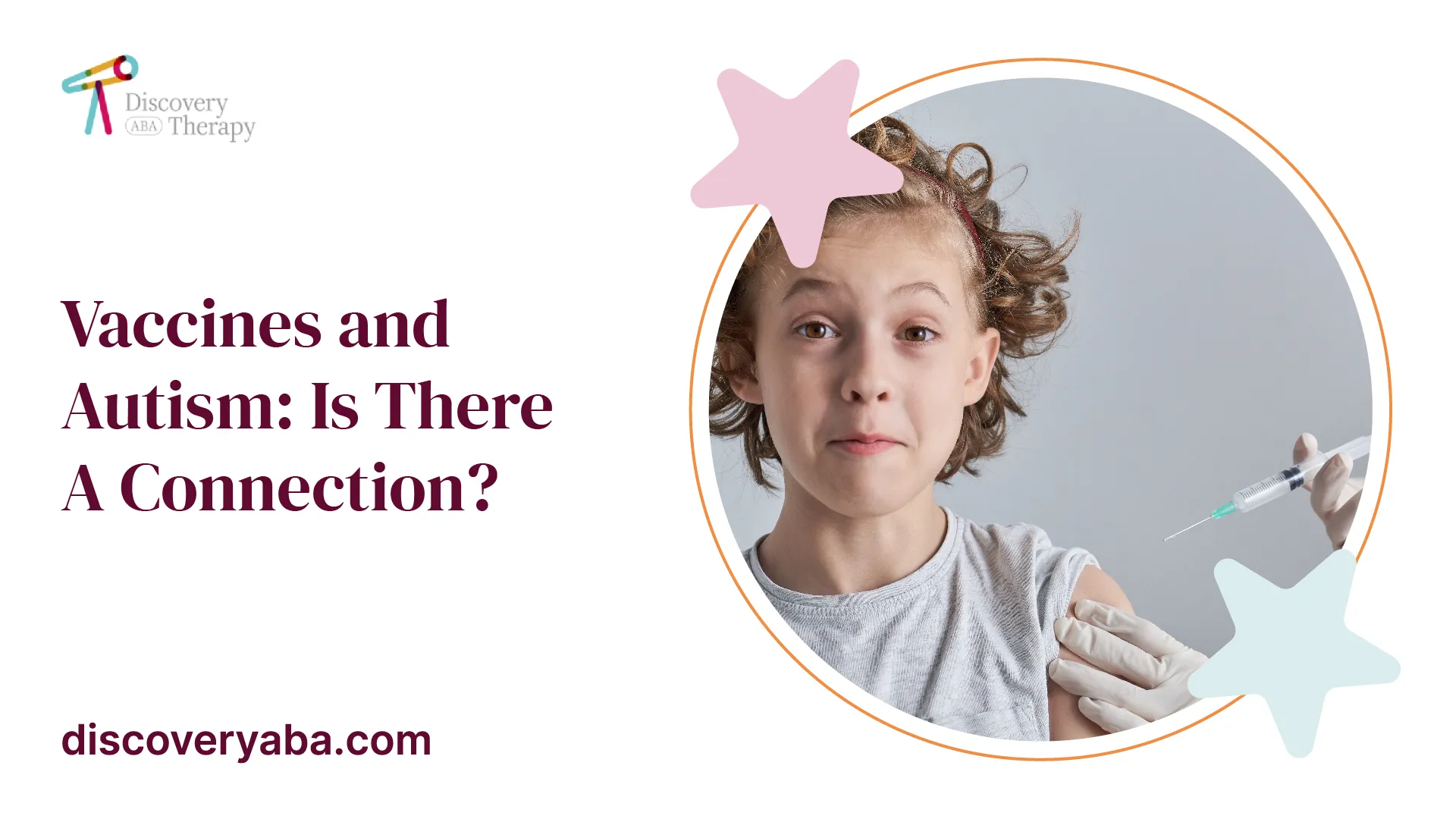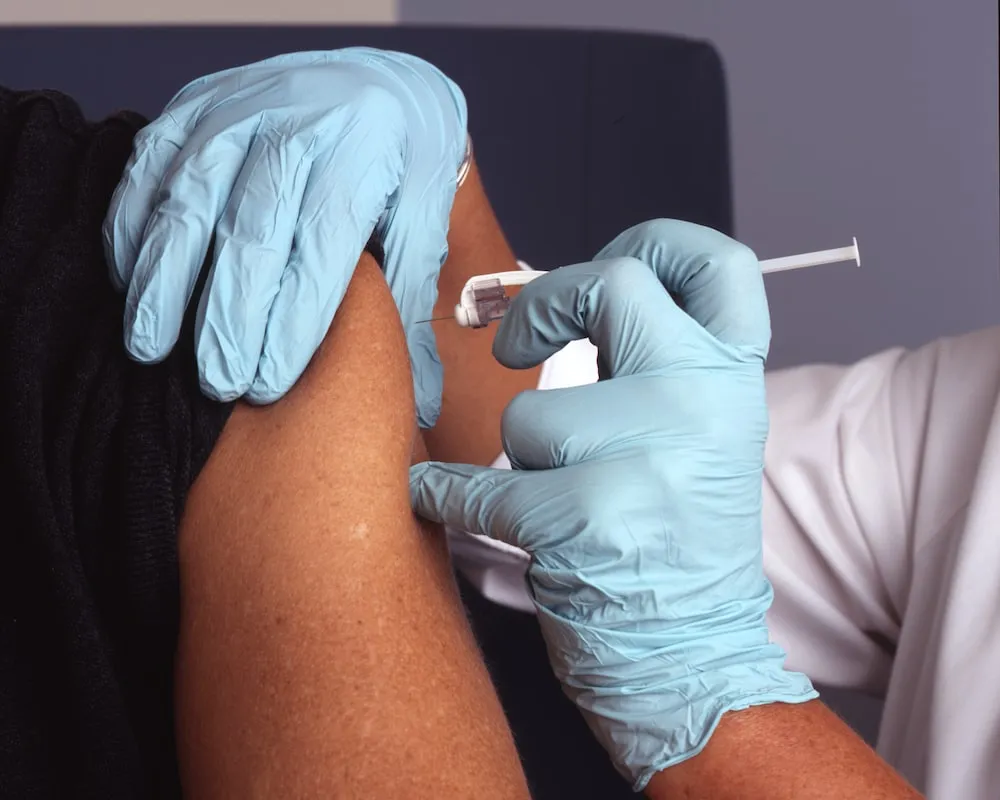Vaccines and Autism: Is There A Connection?
Many people claim that vaccines cause autism, while scientific evidence has overwhelmingly shown that there is no link between vaccines and autism.


No, vaccines or vaccine ingredients do not cause autism.
Vaccines and autism have been a controversial topic for many years. Many people claim that vaccines cause autism, while scientific evidence has overwhelmingly shown that there is no link between vaccines and autism.
Autism is a developmental disorder that affects communication, behavior, and social interaction. It is a complex disorder that is believed to have multiple causes, including genetic and environmental factors.
Vaccines, on the other hand, are a safe and effective way to protect individuals from infectious diseases. They work by stimulating the immune system to produce antibodies against specific viruses or bacteria, which helps the body fight off infection.
The controversy surrounding vaccines and autism began in the late 1990s when a now-debunked study suggested a link between the measles, mumps, and rubella (MMR) vaccine and autism.
However, subsequent studies have found no such link, and the original study has been retracted due to scientific misconduct.
Numerous studies have since been conducted to investigate the safety of vaccines, including their potential link to autism. These studies have found no evidence of a causal relationship between vaccines and autism.
One such study, conducted by the Centers for Disease Control and Prevention (CDC) in 2013, analyzed data from over 1,000 children and found no link between the MMR vaccine and autism.
Another study published in the Journal of the American Medical Association (JAMA) in 2019 analyzed data from over 650,000 children and found no association between the MMR vaccine and autism, even in children who were at higher risk for autism.
Furthermore, the Institute of Medicine (IOM) conducted a comprehensive review of the scientific evidence on vaccine safety in 2011 and concluded that there is no evidence to support a link between vaccines and autism.
One reason why some people still believe that vaccines cause autism is because the onset of autism symptoms often coincides with the timing of vaccines.
However, this correlation does not imply causation. Autism is typically diagnosed around the same time that children receive multiple vaccines, but this is likely due to the timing of developmental milestones rather than a causal relationship between vaccines and autism.
Vaccines are not without risks, but the risks are generally low and the benefits of vaccination far outweigh the risks. Vaccines have been responsible for eradicating or significantly reducing the prevalence of many infectious diseases, including smallpox, polio, and measles.
Is There a Connection Between Vaccines and Autism?
It is important to note that the scientific consensus on the safety and effectiveness of vaccines is based on rigorous research and evidence. In fact, many experts believe that vaccines are one of the greatest public health achievements in history.
Despite this overwhelming evidence, some individuals and groups continue to promote the idea that vaccines cause autism.
This misinformation can be dangerous, as it may lead some people to avoid getting vaccinated or vaccinating their children, putting themselves and others at risk for preventable diseases.
It is crucial to rely on credible sources of information when making decisions about vaccination. The CDC, World Health Organization (WHO), and other reputable organizations provide accurate information about vaccine safety and effectiveness. Additionally, consulting with a healthcare provider can help answer any questions or concerns about vaccines.

Ultimately, it is important to prioritize public health and take steps to protect ourselves and our communities from infectious diseases by getting vaccinated.
Why Vaccines Don't Cause Autism
While the idea that vaccines cause autism has been widely discredited, it is important to understand why this theory persists. One reason may be the complexity of autism itself. Autism is a complex developmental disorder with a range of symptoms and severity levels, and its causes are not yet fully understood.
Additionally, vaccines are often given during the same period when children begin to show signs of autism. This coincidence has led some people to believe that vaccines somehow trigger or cause autism.
However, as mentioned earlier in this document, correlation does not imply causation.
Furthermore, many studies have been conducted to investigate any potential link between vaccines and autism, and none have found any evidence to support such a connection. In fact, many of these studies have found that there is no difference in autism rates between vaccinated and unvaccinated children.
It is also worth noting that the original study linking the MMR vaccine to autism has been thoroughly discredited due to scientific misconduct. The author of the study was found to have falsified data and had his medical license revoked as a result.
Overall, while it may be tempting to look for simple explanations for complex disorders like autism, it is important to rely on scientific evidence when making decisions about healthcare. Vaccines are a safe and effective way to protect against infectious diseases, and they do not cause autism.
Summary
In conclusion, the overwhelming scientific evidence shows that vaccines do not cause autism. Vaccines are a safe and effective way to protect individuals from infectious diseases, and the benefits of vaccination far outweigh the risks.
It is important to rely on credible scientific sources when making decisions about vaccination and to consult with a healthcare provider if you have any questions or concerns.
Sources
Does Your Child Have An Autism Diagnosis?
Learn More About How ABA Therapy Can Help
Find More Articles
Contact us
North Carolina, Nevada, Utah, Virginia
New Hampshire, Maine
Arizona, Colorado, Georgia, New Mexico, Oklahoma, Texas
.avif)




































































































